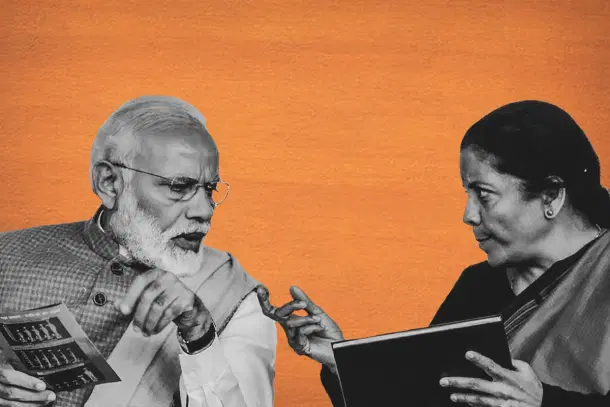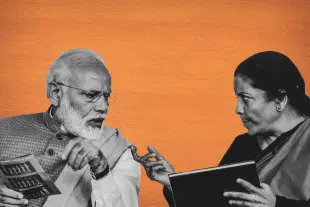News Brief
Government Forms Two High-Level Panels To Drive Next-Generation Economic Reforms, Slash Compliance: Report
Swarajya Staff
Aug 29, 2025, 02:30 PM | Updated 02:43 PM IST
Save & read from anywhere!
Bookmark stories for easy access on any device or the Swarajya app.


After Prime Minister Narendra Modi’s call for next-gen economic reforms during his Independence Day speech, the government is moving fast to make it happen, Business Standard reported.
Two high-level committees, led by NITI Aayog’s Rajiv Gauba, are reportedly working on plans to spark big projects, attract global investors, and cut through the bureaucratic hassle that frustrates businesses and others,
Big Projects to Drive Growth
One committee is focused on turning India’s economic vision, called Viksit Bharat, into reality.
The panel's task is to map out major projects that will create jobs and boost the economy.
This includes ramping up mining, expanding power generation, and investing in forward-thinking energy solutions like green hydrogen and advanced nuclear reactors.
The panel is also looking at ways to make India a go-to spot for huge investments, especially in industries like semiconductors.
To get it right, the team will bring in experts and industry leaders for advice.
Clearing the Bureaucratic Maze
The second committee is tackling the tangle of rules and regulations that slow things down.
The panel is looking at everything from how businesses register with tax authorities to the requirements under the Companies Act.
The goal is to make compliance simpler, possibly by letting people self-certify or using third-party inspections, with occasional checks to keep things on track.
Small and medium businesses, often called MSMEs, are a big focus.
The committee wants to make it easier for them to start up and keep running without getting bogged down by approvals or inspections.
The panel is also reviewing foreign trade rules, including those handled by Customs and groups like the Directorate General of Foreign Trade and the Directorate General of Trade Remedies (DGTR).
Environmental and water pollution regulations are under the microscope too, to see what can be streamlined.
Even certifications from agencies like the Bureau of Indian Standards and the Food Safety and Standards Authority are being evaluated to get rid of outdated or unnecessary steps.
Easing Up on Strict Rules
The government has already started softening some harsh penalties in various laws, and the committee is pushing further in that direction.
The committee would reportedly also focus on the requirements of MSMEs from the central government and its agencies in matters of registration, pre-establishment approvals and post-establishment operations such as inspections and compliances.
Moving Quickly
Both committees were set up last week and have a year to deliver their full recommendations, but they’re expected to send monthly updates to the Department of Economic Affairs, showcasing how seriously the government is taking this.
At the same time, ministries are being told to keep improving the business environment on their own, without waiting for the committees to finish.
There’s also a Task Force on Compliance Reduction and a Deregulation Cell, started earlier this year, helping states and union territories simplify their own regulations.
Building a Stronger, Self-Reliant India
All of this ties into the Atmanirbhar Bharat goal of making India more self-reliant while staying competitive on the world stage.
With major projects, fewer regulatory headaches, and a warm welcome for investors, the country is setting its sights on becoming a global economic leader.
Please click here to add Swarajya as your preferred and trusted news source on Google.
Also Read: Massive Indirect Tax Reforms On Cards As GST Council Set To Meet On 3-4 September





